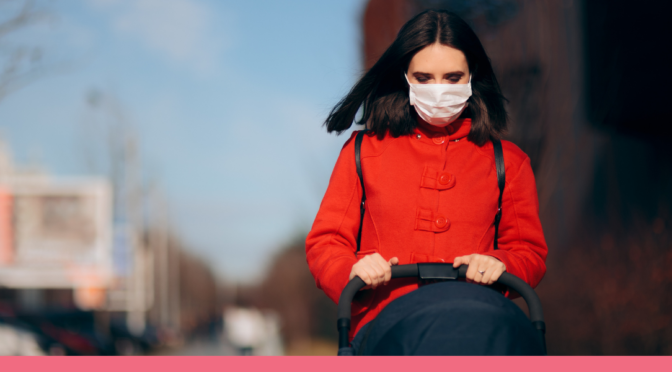Posted By: Amy Tubb
12th March 2020
4 minute read

MMHA guidance on COVID-19 and maternal mental health now available >
Last updated: 03/11/2021 at 09:15
Outbreaks of disease, like coronavirus (COVID-19), can understandably cause worry.
With more than 1 in 10 women developing a mental illness in the perinatal period, it’s even more important in these uncertain times that women during pregnancy and following childbirth are able to access the support and care they and their families need.
Since the outbreak, Maternal Mental Health Alliance (MMHA) members across the UK have offered guidance and support:
The Royal College of Psychiatrists (RCPsych) has produced COVID-19 guidance for clinicians working in community and inpatient services, including perinatal mental health teams and Mother and Baby Units. RCPsych’s guidance has been updated to reflect MBRRACE recommendations relating to perinatal mental health.
The British Psychological Society (BPS) has published best practice guidance for working therapeutically with parents and their infants during pregnancy and postpartum using remote delivery platforms.
As well as information for pregnant women and their families (see below), the Royal College of Obstetricians and Gynaecologists (RCOG) and Royal College of Midwives (RCM) have published joint guidance for healthcare professionals on COVID-19 infection in pregnancy.
The RCM has produced clinical guidance for perinatal mental health care during COVID-19, focussing on identifying, caring for and supporting women at risk of or with pre-existing perinatal mental health problems.
Birth Companions, with support from Consultant Midwife Tamsin Bicknell, have produced guidance for midwives about supporting women facing multiple disadvantages during COVID-19.
Several GPs, lead by Dr Louise Santhanam and backed by MMHA member Royal College of General Practitioners, have created guidance for GPs supporting pregnant and postnatal women during COVID-19.
The Institute of Health Visiting (iHV) is closely following the advice and reports of the UK Government to keep health visitors up-to-date.
Emotional support and mental health
Our support page has a list of member organisations who offer support online and over the phone to anyone in the UK experiencing difficulties with their mental health.
Alliance members have been busy producing information to support new and expectant parents during this uncertain time, including:
The RCM, RCOG, and Royal College of Paediatrics and Child Health have co-published coronavirus information for pregnant women and their families and advice about the COVID-19 vaccine for pregnant and breastfeeding women.
Tommy’s has shared some FAQs which are being regularly updated in response to the latest recommendations from the NHS and Royal Colleges. Their midwives are also answering questions via email and social media (see our support page for details).
Best Beginnings have updated the Baby Buddy app to include information about COVID-19 during pregnancy and early parenthood, including infant feeding. App users also have access to 24/7 crisis support (see our support page for more).
Maternity Action has compiled helpful FAQs about coronavirus and rights during pregnancy.
The RCM and RCOG have released a joint statement about birth partners:
"Having a trusted birth partner present throughout labour is known to make a significant difference to the safety and well-being of women in childbirth. At times like this, when coronavirus is heightening anxiety, that reassurance is more important than ever.
"While we concur with decisions to restrict access to birth partners who have or are suspected of having coronavirus in order to safeguard the health of the woman and the maternity staff supporting her, NHS Trusts and Boards should continue to follow guidance allowing birth partners access to the maternity suite.
"Localised restrictions on visitors may mean that partners are not able to attend routine antenatal appointments or stay with women on antenatal or postnatal wards. However, this should not impact on a birth partner's presence during labour and birth, unless they are unwell."
The Mental Health Foundation has developed some tips to help people look after their mental health at a time when there is much discussion about our physical health. Tips include:
Mind has also produced information to help people cope if they’re feeling anxious or worried about coronavirus, particularly those in isolation.
Public Health England has released guidance for the public on the mental health and wellbeing aspects of coronavirus, including advice for those with specific mental health needs.
Please note that the MMHA is not responsible for the content of any of the links above but hopes that they may provide comfort and help at this time.